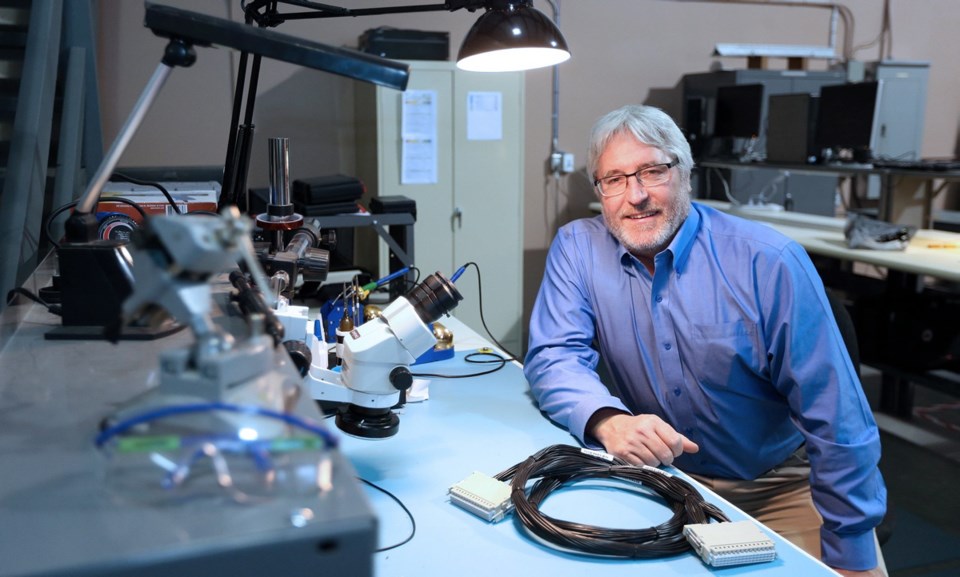A bit of change could turn into a pocket full of cash for one of the elder statesmen of the Victoria technology scene.
Quester Tangent, which turns 33 this year, has high hopes a change in its product lineup, more than two years in the making, could increase company revenue. “We have invested $750,000 to improve our product offering,” said Quester Tangent chief operating officer Bill Collins, noting they have developed a new wrinkle that will pair well with the company’s existing line of monitoring and diagnostic systems for train vehicles.
“The same buyers and procurement guys buying systems from us have another scope of supply — the communication side of trains,” he said. That means systems that govern passenger information, broadcast signals, automated passenger announcement systems and passenger emergency intercoms.
“For us it was a natural expansion of our product line, to add those either as part of a monitoring and diagnostic system or as a standalone technology,” Collins said. “It’s the same route to market, and we now have an opportunity to add 150 per cent to our revenue stream.”
Quester has had a team of engineers working on the project, funded in part by a National Research Council grant, for the last 18 months. The new products will be launched at a large rail conference in Berlin this year.
Innovation and change is nothing new for Quester, which started life in 1983 as a developer of ocean mapping equipment.
And the company has done well as it evolved into a leader in the development of train monitoring systems. Last year, Quester booked contracts worth $20 million to deliver components to four major transit authorities, and Collins expects they could match that figure this year.
Collins said it takes time for those contracts to turn into revenue, but is heartened by the initial sales after two years of “plateauing.”
“This year is a transition year for us and we’re getting new technology into the marketplace,” he said. “We have invested a bunch of money and we hope we will see the fruits of that investment pay off over the next five years.”
Collins, who noted Quester does 90 per cent of its business in the U.S., said with the American economy starting to tick along more steadily and state governments starting to spend money on major projects the company is in a solid spot to take advantage.
“We are seeing more infrastructure projects getting funding and when that happens we kick in,” he said.
The company has not yet been able to take advantage of a low Canadian dollar as it can take 18-24 months to actually win a contract. But even when they get that advantage, it may be tempered by having to deal with strong protectionist policy — buying American — in the U.S.
Collins said they have $100 million in bids that have been entered for various contracts. “I wouldn’t be surprised to see [us win] $15-million-plus this year, and that’s part and parcel of our growth plan,” he said.



